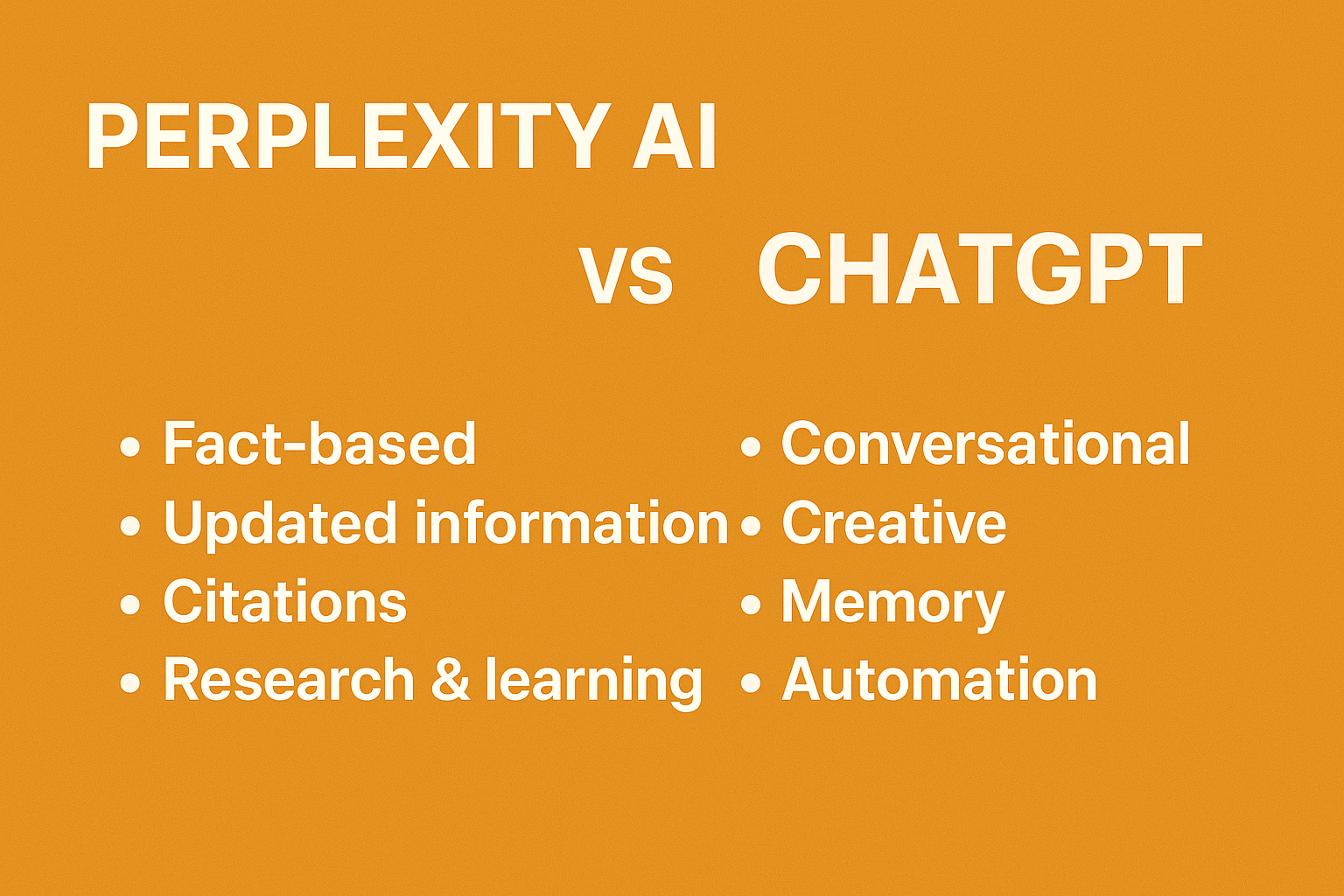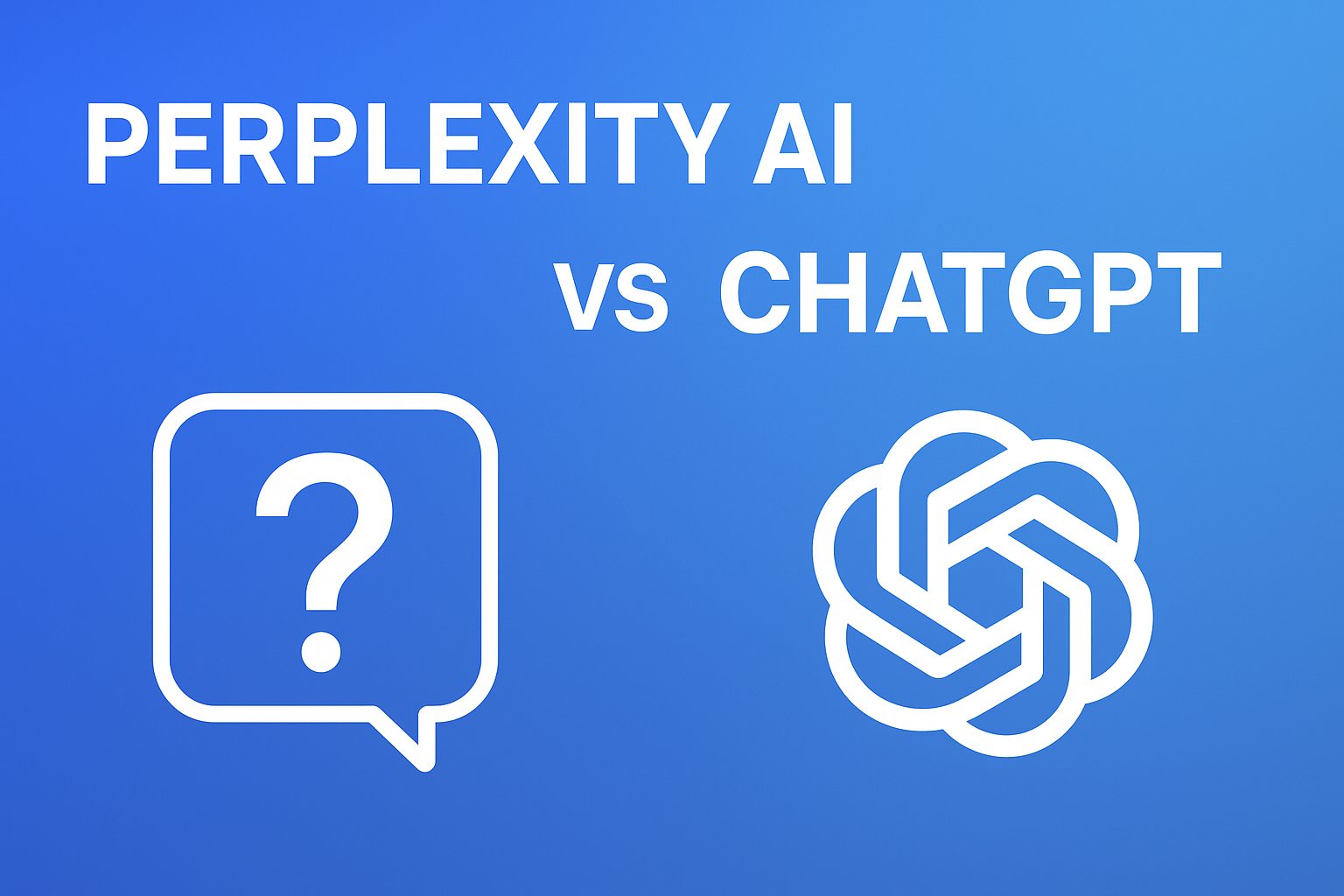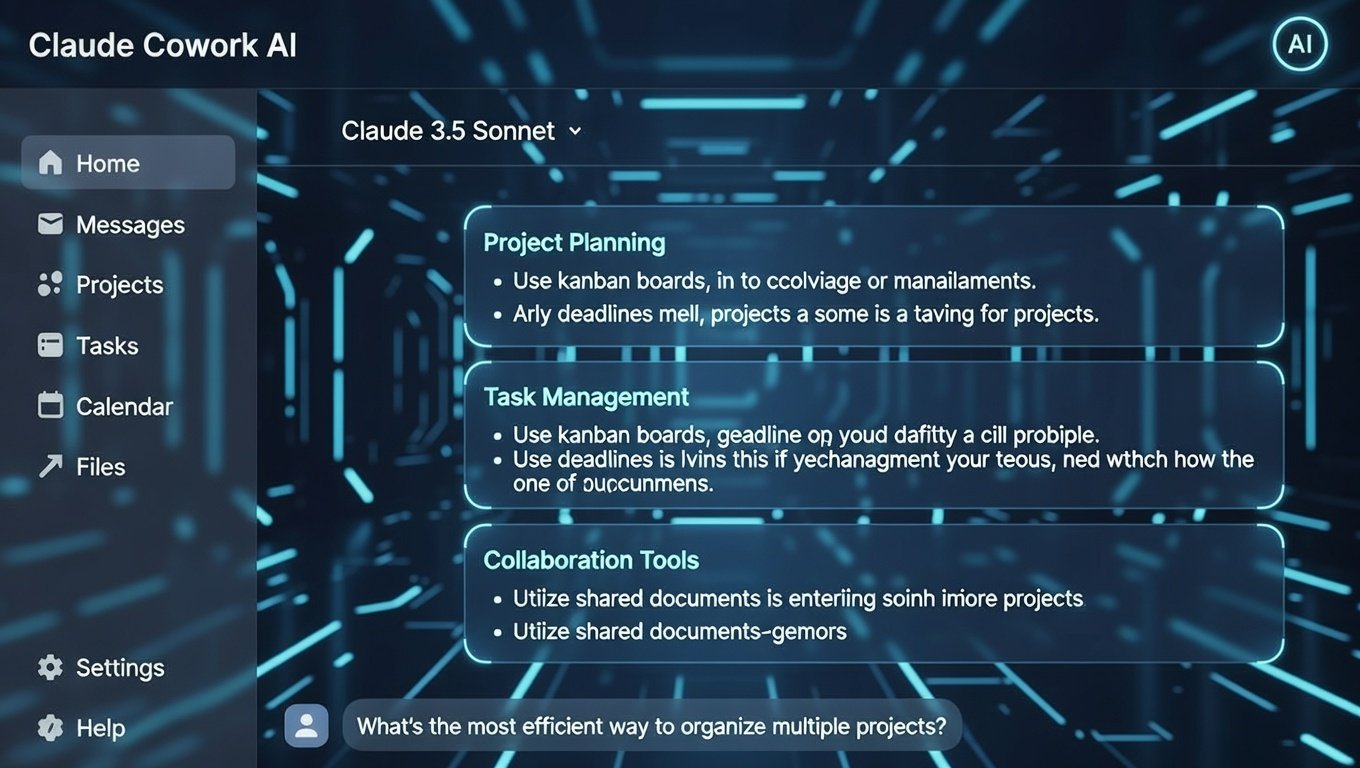Artificial intelligence chatbots have reshaped how we search, learn, and create. But with so many tools available, it can be tricky to figure out which one actually fits your needs.
Two names that frequently come up in conversations about AI assistants are Perplexity AI and ChatGPT. Both are powerful, but they’re designed with different philosophies and user goals in mind.
This guide breaks down the core differences, strengths, and use cases of Perplexity AI and ChatGPT so you can decide which one is better for your workflow, research, or creative projects.
“Perplexity is built as an AI-powered search “answer engine” that focuses on research-oriented responses with sources, whereas ChatGPT is designed as a general conversational AI suited for dialogue and content creation.“
What Is Perplexity AI?
Perplexity AI is an AI-powered search and answer engine designed to deliver factual, concise, and source-backed information.
Think of it as an intelligent hybrid between Google Search and ChatGPT. When you ask a question, Perplexity not only gives you an answer but also shows where that information came from.
Its interface looks like a chat window, but behind the scenes, it’s built for real-time web exploration.
Instead of relying only on pre-trained data, Perplexity can browse the web to pull the most recent and credible sources.
Key Highlights of Perplexity AI
- Provides real-time search results with citations.
- Focuses on factual accuracy rather than creative output.
- Great for students, researchers, and professionals who want reliable data.
- Allows follow-up questions to refine searches contextually.
- Offers Perplexity Copilot, an advanced research assistant powered by GPT-4.
Simply put, Perplexity AI acts like a digital research companion quick, precise, and transparent about where its answers come from.
What Is ChatGPT?
ChatGPT, developed by OpenAI, is one of the most recognized AI chatbots in the world.
It’s known for its ability to generate human-like text, engage in natural conversation, and perform a vast range of tasks from writing essays to coding and creative brainstorming.
ChatGPT uses large language models (like GPT-4) that have been trained on diverse datasets, allowing it to “understand” prompts and respond in coherent, contextual, and conversational ways.
Key Highlights of ChatGPT
- Excellent for creative writing, ideation, and detailed explanations.
- Can perform complex reasoning and code generation.
- Allows for custom GPTs, where users can tailor the model to their needs.
- Offers plugin and browsing capabilities in premium versions.
- Works well for content creation, automation, and customer support.
While Perplexity AI is more like a factual assistant, ChatGPT feels more like a creative partner.
Perplexity AI vs ChatGPT: The Core Difference
Although both tools rely on advanced AI models, their purposes differ. Here’s a simple way to see it:

| Feature | Perplexity AI | ChatGPT |
|---|---|---|
| Primary Function | Search and factual answers | Conversation, creativity, reasoning |
| Data Source | Real-time web results | Pre-trained data (can use web with GPT Plus) |
| Accuracy | High, with cited sources | High but depends on prompt quality |
| Creativity | Limited | Excellent |
| Ideal For | Research, factual queries | Writing, brainstorming, automation |
| User Experience | Research-focused interface | Conversational and flexible |
In short, Perplexity AI feels like a researcher that gives you cited facts, while ChatGPT feels like a smart collaborator that helps you think, write, and create.
How Perplexity AI Enhances Research and Learning
If you’ve ever struggled to find reliable data online, you’ll understand the pain of sifting through endless links.
That’s where Perplexity AI shines. Instead of making you read multiple articles, it condenses the web’s insights into a clear, citation-backed summary.
1. Cited Information
Every answer in Perplexity comes with clickable references. For example, if you ask, “What are the side effects of green tea?” the response will list source links to medical or scientific sites.
2. Contextual Follow-ups
After receiving an answer, you can ask, “Can you compare it with black tea?” and Perplexity will refine the context, maintaining your research flow.
3. Real-time Accuracy
Since it fetches from current sources, Perplexity AI provides up-to-date insights, unlike traditional AI tools that rely on older data.
4. Collaborative Mode (Copilot)
Perplexity Copilot offers guided research assistance it can handle multi-step queries, summarize long documents, and even suggest related topics.
This combination makes Perplexity AI one of the most useful tools for academics, analysts, and professionals who value accuracy and credibility.
How ChatGPT Excels in Creativity and Automation
If your work involves writing, marketing, coding, or content creation, ChatGPT feels like a digital creative partner. It doesn’t just give you answers; it helps you think differently.
1. Writing and Content Creation
You can ask ChatGPT to draft blog posts, emails, ad copies, or even entire eBooks. It understands tone, audience, and style making it a time-saving assistant for writers and marketers.
2. Learning and Teaching
ChatGPT breaks down complex topics into simple explanations. For example, “Explain blockchain to a 10-year-old” will yield an accessible answer, perfect for learning or teaching.
3. Coding and Technical Tasks
For developers, ChatGPT can debug code, generate scripts, and explain logic in natural language. You can even build small automation workflows through it.
4. Custom GPTs
Users can create their own customized versions of ChatGPT tailored for tasks like resume writing, SEO audits, or sales training.
This flexibility makes ChatGPT a multi-domain problem solver rather than just a text generator.
Step-by-Step: When to Use Perplexity AI and When to Use ChatGPT
Here’s a practical breakdown based on everyday use cases:
Use Perplexity AI When:
- You need verified and cited answers for research or reporting.
- You want to check factual claims before publishing content.
- You’re gathering data-driven insights for academic or market studies.
- You need to stay updated with current web information.
Use ChatGPT When:
- You’re writing content, scripts, or marketing material.
- You want to generate ideas, outlines, or creative briefs.
- You need help automating repetitive writing or coding tasks.
- You’re building chatbots or custom AI assistants for your business.
The smart approach? Use both together. Many professionals use Perplexity AI for research and ChatGPT for content creation, combining accuracy with creativity.
Example Scenario: Building a Report Using Both Tools
Imagine you need to write a report about “AI’s impact on education.”
- Step 1: Use Perplexity AI
Ask, “Recent studies on AI tools used in education 2025.”
It’ll give you current findings and cite academic papers or media sources. - Step 2: Use ChatGPT
Take those insights and ask ChatGPT to structure them into a professional report.
It’ll format, elaborate, and present your findings in a readable, engaging tone.
This workflow saves time, improves accuracy, and ensures your writing has both substance and style.
Privacy, Data, and Accessibility
Perplexity AI:
- Operates with a transparent citation system.
- Doesn’t store long-term chat histories unless you choose to.
- Prioritizes fact-based retrieval rather than personal context.
ChatGPT:
- Offers user accounts and custom GPT memory for personalized responses.
- Stores conversation history (optional) for continuity.
- Has a larger creative database but may occasionally produce unverifiable content.
When privacy is crucial, Perplexity AI might feel safer due to its direct sourcing model. But for tasks that require continuity and personalization, ChatGPT is superior.
Cost and Accessibility Comparison
Both tools have free versions, but advanced features require upgrades.
- Perplexity AI Pro Plan: Adds Copilot, GPT-4 support, and advanced search control.
- ChatGPT Plus: Unlocks GPT-4 access, browsing, and plugin support.
If your goal is fast and accurate research, Perplexity AI Pro is worth it. If you want a versatile AI that can help you think, write, and build ChatGPT Plus delivers strong value.
Future Outlook: What’s Next for AI Assistants
Perplexity AI and ChatGPT are setting new standards for how we interact with information.
The future will likely bring a fusion of these capabilities AI tools that can research, reason, and create within one unified system.
In fact, we’re already seeing early examples of this convergence.
Some third-party platforms integrate Perplexity’s live search with ChatGPT’s creative interface to give users the best of both worlds.
Which One Should You Choose?
If your priority is accuracy, citations, and real-time facts, go with Perplexity AI. It’s the best fit for researchers, students, analysts, and professionals who want trustworthy information fast.
If you need creativity, automation, and deep contextual understanding, ChatGPT will serve you better. It’s ideal for writers, entrepreneurs, educators, and developers.
FAQs
1. What is the main difference between Perplexity AI and ChatGPT?
Perplexity AI functions mainly as an AI-powered search assistant that provides source-backed answers and real-time information, whereas ChatGPT is a conversational AI chatbot designed to engage in dialogue, generate creative content, and assist with a wide range of tasks.
2. Which tool is better for research and accurate information?
Perplexity AI is generally better for research and accuracy because it pulls live data from the web and provides citations with its responses, making it more reliable for fact-checking or academic use. Zapier
3. Is one of them better overall?
There isn’t a single “better” option overall the best choice depends on your needs: Perplexity AI is ideal for fact-driven, up-to-date research, while ChatGPT is better for conversational interactions, creative writing, and generating diverse content types. G2 Learn Hub
4. Can both tools be used for content creation?
Yes both can aid content creation, but ChatGPT is generally stronger at generating original text, creative storytelling, and conversational output, while Perplexity can help with research, summaries, and fact-checked references.




